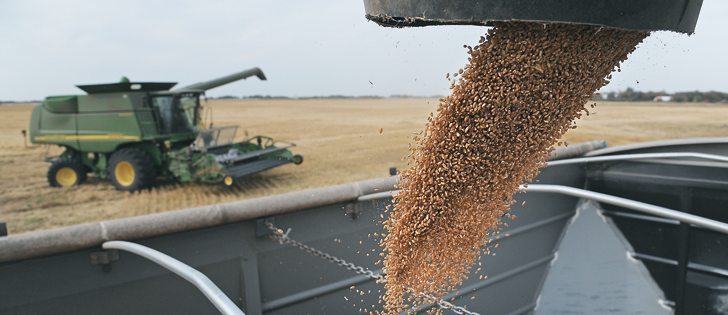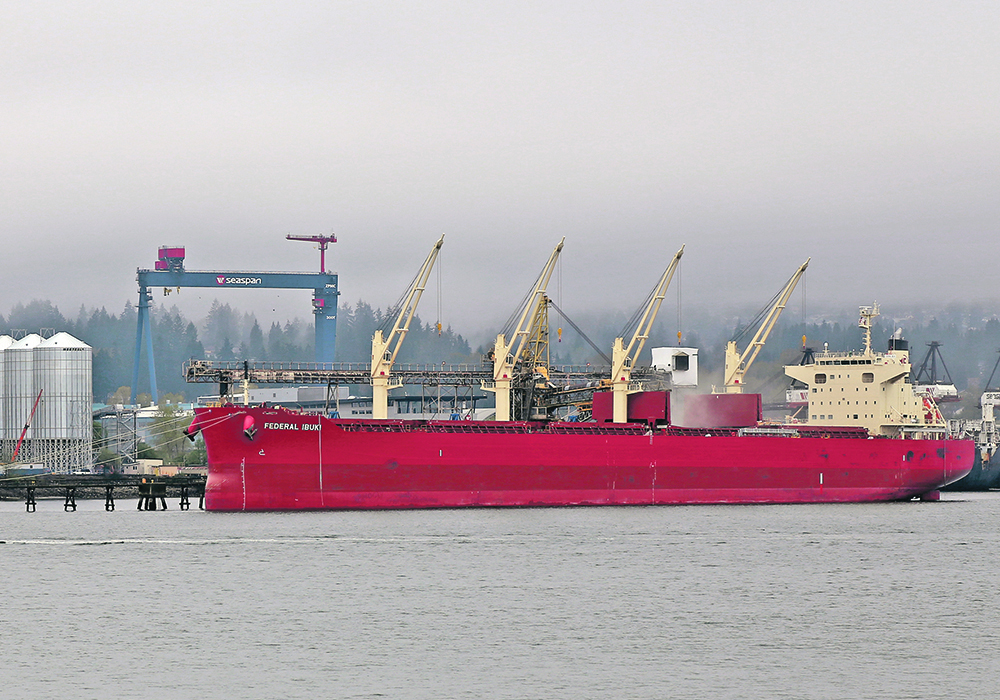Grain analysts are beginning to think Canada will export a lot less wheat than Agriculture Canada is forecasting and that means higher carryout and lower prices.
Marlene Boersch, managing partner in Mercantile Consulting Venture, has been tracking the Canadian Grain Commission’s export numbers and they’re not on pace to meet Agriculture Canada’s forecast for 18 million tonnes of non-durum wheat exports.
“We’re not anywhere near that at the moment,” she said.
“Unless we improve rail performance, it seems to me that the carryout is going to be higher.”
Read Also

Huge Black Sea flax crop to provide stiff competition
Russia and Kazakhstan harvested huge flax crops and will be providing stiff competition in China and the EU.
The CGC weekly export figures don’t capture all movement, but they account for most and are much more up to date than Statistics Canada’s monthly figures for February.
The CGC figures show wheat exports to date are ahead of last year’s pace at the same point, but, like last year, a huge end of the year push will be needed to hit the Agriculture Canada export forecast.
Canada has been exporting wheat at a pace of 313,000 tonnes per week through Week 38 of the 2014-15 campaign. To meet Agriculture Canada’s target would require the pace to increase to 436,000 tonnes per week for the remaining 14 weeks of the marketing season.
Boersch expects that won’t happen.
“It’s very negative for growers, because you’re entering the year again with a higher carryout than we should have,” she said.
Neil Townsend, director of CWB Market Research, agrees. He has reduced his wheat export number to 17.2 million tonnes and increased carryout to 6.4 million tonnes, which is 1.2 million tonnes higher than Agriculture Canada’s carryout number.
“I don’t think it’s a good situation,” he said.
Canadian wheat is having trouble competing in markets outside of southeast Asia. Townsend said currency devaluation is making wheat from places like Europe, South America and the Black Sea region extremely price competitive.
“Europe is really sending out a lot of wheat,” he said.
He doesn’t see the competition subsiding any time soon. Europe has another massive crop on the way and Russian farmers will be in a hurry to get their product to market right off the combine for fear that an export tax that is expected to be removed fairly soon will be reapplied.
That will make for stiff competition in key markets like the Middle East.
Boersch thinks Canada already carries forward too much grain. Farmers produced 24 million tonnes of wheat and Agriculture Canada expects 5.2 million tonnes of carryout, which is likely far too low of an estimate. That carryout works out to 22 percent of production.
By contrast, the European Union produced 156 million tonnes last year and is expected to carry 15 million tonnes, or 9.6 percent of production, despite importing an additional six million tonnes.
“What makes us think it’s actually good to carry year-in, year-out five million tonnes of wheat. Shouldn’t we be selling it?” said Boersch.
“We have conditioned ourselves to be content with fairly big numbers.”
And it’s not just wheat. Carryout of all grains and oilseeds is expected to be 11 million tonnes in 2014-15.
“I find that horrendous. Why do we think that’s good?” said Boersch.
Contact sean.pratt@producer.com


















